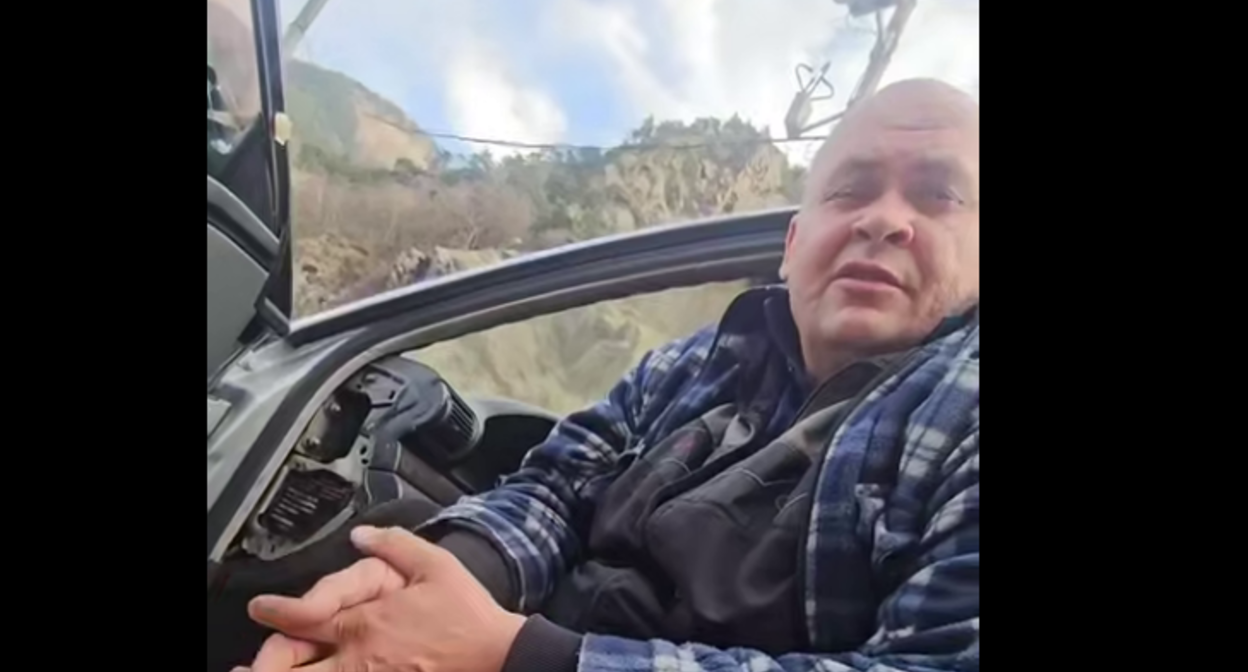Georgian authorities rely on Hammarberg's help in releasing detainees in the conflict zone with South Ossetia
Today, Thomas Hammarberg, Commissioner of the Council of Europe, came to Georgia for his three-day visit. The "Caucasian Knot" correspondent was told by Mr Hammarberg's press service that today he would have meetings with activists of NGOs and human rights organizations, then - with government officials, prior to his visit to South Ossetia.
There - in South Ossetia - Mr Hammarberg will talk about releasing the people detained after the conflict in August 2008 and setting up a group of international experts for settling the conflicts, which stem from people's detentions.
"The International Red Cross is active in this sphere (search of missing persons), and I hope I can help them. I regret that so little has been done to repair the situation. I think we need to put more efforts towards defending the interests of ordinary people," said Thomas Hammarberg.
As noted by Georgian human rights defenders, the Red Cross is known for its closeness, and it is difficult enough to cooperate with them. At the same time, according to Ucha Nanuashvili, head of the Georgian Human Rights Centre, one of the most interested and - at the same time - the most transparent structure for cooperation is the RU Commissariat for Human Rights.
Elene Tevdoradze, Deputy Minister on Reintegration Matters of Georgia, said in her conversation with the "Caucasian Knot" correspondent that South Ossetia keeps about 20 citizens of Georgia, while in the territory of Georgia 6 residents of South Ossetia are searched.
She has noted that the authorities of South Ossetia had addressed her about these persons. "We could not find them by the forces of our Ministry. Therefore, one of points is purely technical: by means of the government - probably, it should be the Prosecutor's Office and the Ministry of Internal Affairs - to find some information about the searched people," Ms Deputy Minister has added.
"I can tell absolutely clearly that we have no facts about kidnappings in the territory of Georgia. But those who live on this side call us very often, and we have to find chances to release people. It happens only because they need to procure firewood, harvest their crops or take water from somewhere. The people who had lived all their life in this territory feel hard to focus their attention on the fact whether they have crossed the border or not," Ms Tevdoradze believes.
Professor of philology Naira Bepieva, an expert on Georgian-Ossetian matters and head of the Ossetian Division of the Tbilisi-based NGO "Caucasian Home", believes that indeed there were violations on the Georgian party either. "Unfortunately, both parties make violations, and people are unreasonably detained," Ms Bepieva told the "Caucasian Knot" correspondent.
Let us note here that, according to the South-Ossetian party, 39 citizens of South Ossetia continue to stay in Georgian prisons, the fate of seven of them remains unknown.
While Elene Tevdoradze spoke about 6 persons, whom the South-Ossetian authorities asked to find, Mr Nanuashvily told about the list of 31 persons, whom these authorities ask to return.
The Georgian political scientist Paata Zakareishvili, in his turn, explains that out of the list six persons really disappeared in the post-war period. Others, according to his version, are established persons, who serve their terms of imprisonment.
"Most of them were convicted under criminal charges, and, really, there are quite definite criminals among them, for example, organizers of the terror act in Gori," Mr Zakareishvili has stated. At the same time, the political scientist has noted that among those 16-18 citizens of Georgia, kept in the prison in Tskhinvali, there are not only those, accused of breaking the border, but also those convicted by the court of South Ossetia for criminal offences.
Paata Zakareishvili is sceptical as to current chances of Thomas Hammarberg to return anyone to Georgia or South Ossetia. "In my opinion, he's come today not so much to solve particular cases, but sooner to launch the process, since setting up of a commission is on the agenda to further deal with the detainees in the territories of Georgia and South Ossetia," said the political scientist and reminded that as of today some 16-18 citizens of Georgia are still kept in the territory of South Ossetia.
"We could tackle with Ossetians, but to do so, the Georgian government should agree to make contact and resort to some concessions. But Georgia needed a PR-campaign and attraction of public attention. Therefore, we now have to invite such high-ranking intermediaries like the EU's High Commissioner on Human Rights," the political scientist is sure.
However, Naira Bepieva would not agree, saying that actually today intermediaries are a must: "Yes, certainly, sooner or later Georgians and Ossetians will have to find common language independently. We'll have to make arrangements, but today, because of the conflict, there's great tension between Tbilisi and Tskhinvali. Therefore, at this stage we need mediators."
Under the statement of Ms Tevdoradze, Deputy Minister on Reintegration Matters, this time Thomas Hammarberg will not visit Abkhazia; he will go to South Ossetia only.
Source: CK correspondent





![Tumso Abdurakhmanov. Screenshot from video posted by Abu-Saddam Shishani [LIVE] http://www.youtube.com/watch?v=mIR3s7AB0Uw Tumso Abdurakhmanov. Screenshot from video posted by Abu-Saddam Shishani [LIVE] http://www.youtube.com/watch?v=mIR3s7AB0Uw](/system/uploads/article_image/image/0001/18460/main_image_Tumso.jpg)